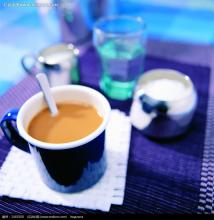Introduction to the delicious Kilimanjaro Coffee Manor in Tanzania
Tanzania was once a famous "frontline country" and made great contributions to the political liberation of the African continent. It pursues a foreign policy of non-alignment and good-neighborliness and friendship, and advocates the development of friendly and cooperative relations with other countries on the basis of non-interference in each other's internal affairs and mutual respect for sovereignty. In this century, the pragmatic tendency has increased, emphasizing economic interests as the core, diluting the principle of non-interference in internal affairs, developing relations with all donor countries, international organizations and multinational corporations, and seeking more foreign aid and foreign investment. We will focus on building good-neighborliness and friendship and spare no effort to promote regional economic cooperation. Actively participate in the mediation of regional issues related to their interests. Attach importance to relations with Asian countries and learn from the development experience of Asian countries. It is a member of the United Nations, the non-aligned Movement, the British Commonwealth, the African Union, the East African Community, the Southern African Development Community and the Alliance for Cooperation around the Indian Ocean. China has established diplomatic relations with 115 countries since 1964. China has provided various kinds of assistance to Tanzania since 1964. The main assistance projects include Tanzania-Zambia Railway, Friendship Textile Mill, Mbalari Farm, Kivina Coal Mine and Mahonda Sugar Mill. The mutually beneficial cooperation between China and Tanzania began in 1981. At present, more than 40 companies are engaged in labor contracting business in Tanzania. In 2012, the bilateral trade volume reached US $2.47 billion, an increase of 15.2% over the same period last year, of which China exported US $2.09 billion and imported US $380 million. The Chinese side mainly exports machinery and equipment, vehicles and daily necessities, and mainly imports wood, sisal fiber, raw cowhide and seafood. In November 2011, the Chinese government economic and trade delegation visited Tanzania and held the fourth meeting of the Economic and Trade Joint Committee of the two countries, and the two sides signed an agreement on economic and technological cooperation between the two countries. In March 2012, a Chinese government economic and trade delegation visited Tanzania and the two sides signed an agreement on economic and technological cooperation between the two countries. In September 2012, Vice Premier Hui Liangyu visited Tanzania and the two sides signed a number of cooperation documents on agriculture, energy and infrastructure construction. In March 2013, President Xi Jinping paid a state visit to Tanzania, where the two sides signed a number of intergovernmental and enterprise and financial institutions cooperation documents on infrastructure construction, energy, communications, agriculture, investment and financing, import commodity quarantine and so on.
China and Tanzania have signed agreements on education, health, culture and tourism. China began to accept students from Tanzania in the 1960s. In 2012, there were a total of 873 Tanzanian students studying in China, of which 307 were Chinese government scholarships. In 2000, the two sides signed an agreement on the cooperation project for the development of higher education. according to this, we have successively built a material laboratory and a computer laboratory for the Dar es Salaam Institute of Technology, and have sent teachers to teach in the school for many times. So far, China has sent 1650 medical team members to Tanzania, and now 25 and 21 medical team members are working in mainland Tanzania and Zanzibar respectively. China will set up a Chinese cultural center in Tanzania. Military exchanges and cooperation between the two countries began in 1964, and bilateral exchanges are frequent.
Tanzania is China's largest recipient of aid in Africa. The joint venture and cooperation between China and Tanzania began in the 1960s and developed rapidly around this century. Tanzania-China Friendship Textile Co., Ltd. is a joint venture project provided by our government on the basis of the friendship textile mill I assisted in. It has become a successful example of mutually beneficial cooperation between China and Tanzania under the new situation. Ethiopian Airlines carries air import and export goods between China and Tanzania in this century, and since EIA signed Beijing Fanyuan International Transport Service Co., Ltd. as the core agent, China's exports to Tanzania have increased day by day. In the first half of 2007, the bilateral trade volume was US $352 million, an increase of 44.1% over the same period last year, of which China's exports were US $231 million and imports were US $121 million. We mainly export grain, vehicles, textiles, light industrial products, chemical products, machinery and equipment, electrical appliances, steel, etc., and import dry seafood, raw leather, logs, crude copper and wood handicrafts from Tanzania.
The coffee beans produced here are all exported from Kilimanjaro, but apart from Mount Kilimanjaro, there are several major coffee-producing areas throughout Tanzania, there are more small farms in other areas, and most small farms also have a planting area of several hundred mu. Some have their own washing equipment and drying farms, but graded treatment still has to go through large-scale treatment plants. Tanzania has considerable historical experience in growing coffee, and even small farms can handle good quality coffee beans.
Drinking Tanzanian coffee, especially the small round bean peaberry, is always impressive. Coffee is like the simple, frank and enthusiastic national character of Tanzania. Its refreshing acidity and medium mellowness complement sweet citrus and floral aromas. This coffee tastes great whether it's a hot drink or iced coffee. With oranges or berries, it can show its bright flavor. You can experience that different ethnic groups produce different coffee flavors, while the same land breeds coffee trees and people at the same time. Tanzania's main coffee producing area is located at the foot of Mount Kilimanjaro, which is rich in volcanic soil. some coffee trees planted here are more than 100 years old. coffee was first introduced and planted by Christians from Kenya, and coffee trees must be carefully taken care of, weeding and fertilizing. Old branches must also be cut off so that new ones can grow to maintain the quality of coffee beans. The processing plant is located in a nearby town at the foot of the mountain, making it easy to handle coffee beans nearby. Many of the farm owners' families have lived here for generations of immigrants, including Indians, Scandinavians, British, and, of course, locals, but most of them are small farms. however, the managers of farms and processing farms are mostly local people. Labor in Tanzania is cheap, so much of the work of pruning and maintaining coffee plantations in Tanzania depends on manual processing rather than machines. During the coffee growing season, the job of coffee workers is to manually check to remove the leaves of some sick or growing insects. Coffee processing in Tanzania is highly dependent on labor, but it also brings jobs to locals and increases household income. Workers earn their wages by picking the number of coffee fruits, and women on small farms use their hand-made sacks to bring coffee fruits to the farm to calculate the money.

Important Notice :
前街咖啡 FrontStreet Coffee has moved to new addredd:
FrontStreet Coffee Address: 315,Donghua East Road,GuangZhou
Tel:020 38364473
- Prev

Introduction to the characteristics of the manor producing area of pure and full-bodied Guatemalan coffee boutique coffee bean flavor
The Patriotic Party: the ruling party. Retired General Otto Perez founded the party on December 20, 2001 and served as the party's de facto leader. Originally a member of the ruling coalition of the Berhe government, he withdrew in June 2004 due to political differences. General Secretary Rosanna Baldetti. [16] National Union of Hope: opposition. After the split of the New National Union in 2001, former President Colom (originally belonging to Guatemala)
- Next

Costa Rican Yesaro Coffee Flavor and taste introduction to the characteristics of Fine Coffee in the Manor area
The Supreme Court is the highest judicial body, composed of 22 judges for a term of eight years. At the end of his term of office, he or she may be automatically re-elected if there is no objection from the members of Parliament. There are four courts, the first, second and third tribunals are each composed of five judges, and the fourth court (Constitutional Court) is composed of seven judges and has the final power to interpret the Constitution. The Chief Justice shall be appointed by the Legislative Assembly for a term of eight years and may be re-elected. Highest
Related
- Detailed explanation of Jadeite planting Land in Panamanian Jadeite Manor introduction to the grading system of Jadeite competitive bidding, Red bid, Green bid and Rose Summer
- Story of Coffee planting in Brenka region of Costa Rica Stonehenge Manor anaerobic heavy honey treatment of flavor mouth
- What's on the barrel of Blue Mountain Coffee beans?
- Can American coffee also pull flowers? How to use hot American style to pull out a good-looking pattern?
- Can you make a cold extract with coffee beans? What is the right proportion for cold-extracted coffee formula?
- Indonesian PWN Gold Mandrine Coffee Origin Features Flavor How to Chong? Mandolin coffee is American.
- A brief introduction to the flavor characteristics of Brazilian yellow bourbon coffee beans
- What is the effect of different water quality on the flavor of cold-extracted coffee? What kind of water is best for brewing coffee?
- Why do you think of Rose Summer whenever you mention Panamanian coffee?
- Introduction to the characteristics of authentic blue mountain coffee bean producing areas? What is the CIB Coffee Authority in Jamaica?

